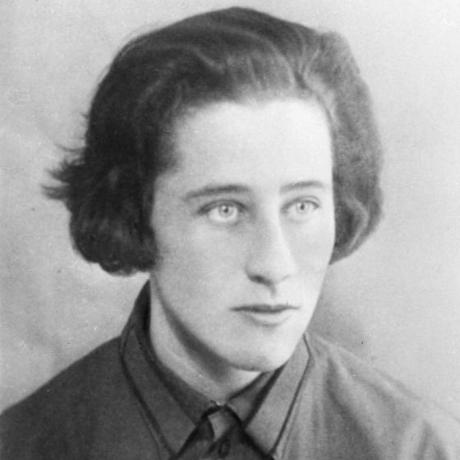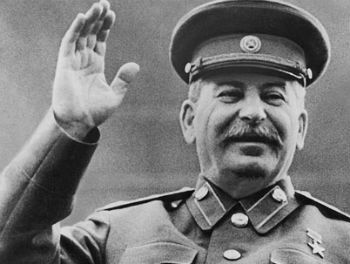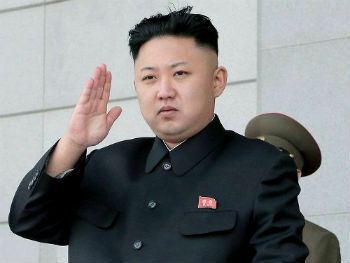Olga Benário Prestes (1908-1942) was a German revolutionary of great importance in the 20th century.
She militated with the Communist Party of Germany and later in the Soviet Union, where she improved her theoretical and practical knowledge, becoming a prominent figure in the movement.
Because of this, she was given the mission to accompany the also militant Luís Carlos Prestes on a trip to Brazil, in order to guarantee his safety. The two marry and continue the revolutionary struggle on national territory.
They are arrested and Olga is sent pregnant to her home country, Germany, where the persecution of Communists and Jews was intense (she was of Jewish origin). There she is tortured and killed in a Nazi concentration camp.
Olga Benário's life
Although she did not live long, Olga Benário Prestes had an intense and troubled life. The political activist was a determined woman from an early age, sparing no efforts in the fight against Nazi-fascism.
Thus, she worked in Germany, the Soviet Union and Brazil, leaving a legacy of resistance and struggle for her humanitarian ideals.

Olga's early years and youth
Olga Gutmann Benário was born in 1908 on February 12 in Munich, Germany.
Coming from a wealthy Jewish family, her father, lawyer Leo Benário, was a member of the German Social Democratic Party, and had some concern for the poor population. Her mother was socialite Eugenie Benário.
At 15, Olga starts political activism, joining the Schwabing Group, a communist collective for minors.
Soon the young woman begins to have a relationship with Professor Otto Braun and, at age 16, moves to Berlin with him. In the new city, and far from the resistance of the family, Olga is intensely active against the Nazi Party and the advance of the far right, playing a prominent role in the communist movement.
In 1926 she is arrested for plotting against the government and remains incarcerated for about two months. Otto Braun also goes to prison and, while Olga is released, he remains in prison.
So, in 1928, Olga executes the plan to invade the Moabit prison, where Otto was, and manages to free him. The two become wanted by the police on charges of high treason to the motherland and flee to the Soviet Union.
In Moscow, Olga continues her activism, deepens her knowledge of Marxist theory and receives military training. He was then entrusted by the Communist International to escort Luís Carlos Prestes on his return to Brazil. He was a Brazilian militant who was on the run because of the About Column.
arrival in Brazil
In order not to generate distrust, Olga and Luís Carlos Prestes they travel back to Brazilian soil as if they were newlyweds. For this they use false documents. The two fall in love during the trip and become, in fact, a couple.
After arriving in the country, Prestes participates in a revolutionary uprising that was intended to overthrow the government of Getúlio Vargas.
That communist uprising took place at the end of 1935 and was organized by the ANL (National Liberating Alliance), a front of anti-fascist left that had the support of the Brazilian Communist Party (PCB) and the International Communist.
Olga's arrest and dispatch to Nazi Germany
The uprising was short-lived, quickly quelled, and the couple is arrested in March 1936. Olga, who was 2 months pregnant, is kept imprisoned, suffering endless abuse and interrogation in order for her to betray her fellow activists.
The revolutionary did not give in to pressure and was deported at the behest of Getulio Vargas to her home country, Germany, which at that time was already persecuting Jews and, above all, Communists.
So, she is forcibly loaded on September 23 on the ship La Coruña, when she was already 7 months pregnant. The instruction was that the ship make no stops and go directly to its final destination.
Once there, Olga is received by the Gestapo, the German Nazi police, and sent to the Barnimstrasse prison in Berlin.
In the same year, on November 27, she gives birth to Anita Leocádia Prestes. The child remains with Olga until 14 months, during the breastfeeding period.
Later, after great international pressure, Anita Leocádia is handed over to her paternal grandmother and her aunt, who become responsible for raising her.
Read too: Nazism.
death in concentration camp
Thus, Olga is sent to several concentration camps, performing forced labor and suffering torture, as well as other prisoners.
On April 23, 1942, the trajectory of Olga Benário ends, who was murdered at the age of 34 along with 199 other women in a gas chamber in the Bernburg extermination camp.
Film and books about Olga Benário Prestes
In 2004 the film was released Olga, telling the revolutionary trajectory. The direction is by Jayme Monjardim and Camila Morgado plays Olga, while the role of Luís Carlos Prestes featured the performance of Caco Ciocler.
Previously, in 1985, her biography was also released, which was named Olga - the Life of Olga Benário Prestes, written by Fernando Morais.
In 2017, historian Anita Leocádia Prestes, daughter of Olga and Luís Carlos Prestes, published the book Olga Benário Prestes: a communist in the Gestapo archives.
The work is a complement to his mother's story, displaying unpublished documents found in the archives of the German secret police.
Phrases by Olga Benário
- "I fought for the fair, the good and the best in the world."
- "I fight on the side of the revolution. Not from a man."
- "Preparing for death doesn't mean I surrender, but knowing how to face it when it comes."
- "If others have become traitors, I will never be."


